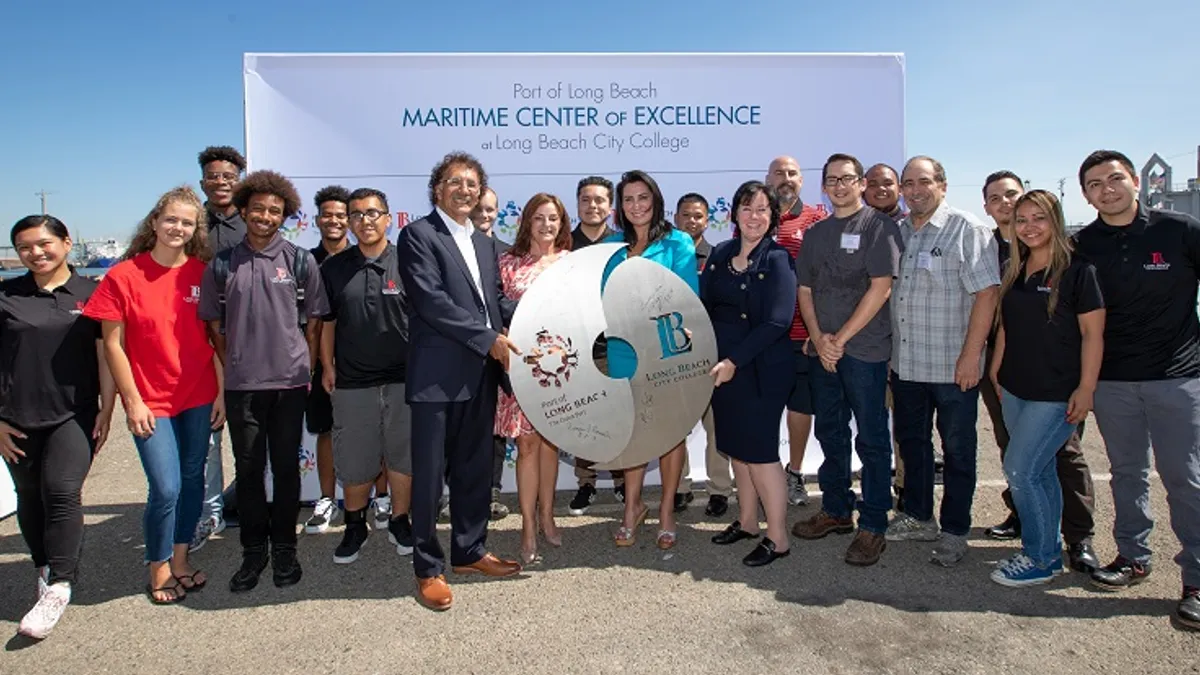Dive Brief:
- The Port of Long Beach and Long Beach City College last week launched a one-year pilot program to train new workers in the supply chain and logistics space, with a set of education programs for students looking for opportunities beyond high school but shorter than four-year college degrees.
- The Port of Long Beach Maritime Center of Excellence at Long Beach City College will include six different certificate courses, designed as short-term training programs taking between 30 and 80 hours, depending on the training, Lee Peterson, media relations manager at the Port of Long Beach, told Supply Chain Dive.
- Trainings at the center will focus on "in-demand occupations," such as warehouse and distribution supervisor, transportation supervisor, logistics and supply chain specialist, order processor, shipping and receiving clerk and scheduler and operations coordinator, according to a press release.
Dive Insight:
The Port of Long Beach has a long history of providing local training, thanks to its general education outreach program within the port, which includes:
- The Academy of Global Logistics at Cabrillo High School in Long Beach, which aims to introduce high school students to the world of supply chain jobs.
- Scholarships for high school and college students. Peterson said the port has awarded $775,400 in scholarships to 464 students since 1993.
- Summer paid internships for high school students and one- to two-year internships for college students.
Most of those initiatives, however, are geared to prepare students for future employment either through early education or by enabling them to pursue four-year college degrees. The Maritime Center adds a key new program, designed to practically train interested students to perform in-need jobs without a college degree.
Such "middle-skill" training programs are becoming an increasingly common tool for supply chain employers looking to bring in new talent. Stakeholders ranging from Volvo and General Electric to the State of Wisconsin are rushing to recruit, retrain and retain workers amid the industry's long-standing talent crisis.
"Ports and other supply chain companies across the country and around the world are realizing the vital importance of developing a skilled maritime workforce to ensure the future of the goods movement industry," Port of Long Beach Executive Director Mario Cordero said in a press release.
The pilot program will include an "advisory group with industry partners," tasked with identifying "in-demand middle-skill jobs." Peterson said the list of companies participating in the project has not been compiled just yet.
"Now that the project has been announced, educators will work on the structure and ultimately the integration and networking with the industry," Peterson said in an email.














